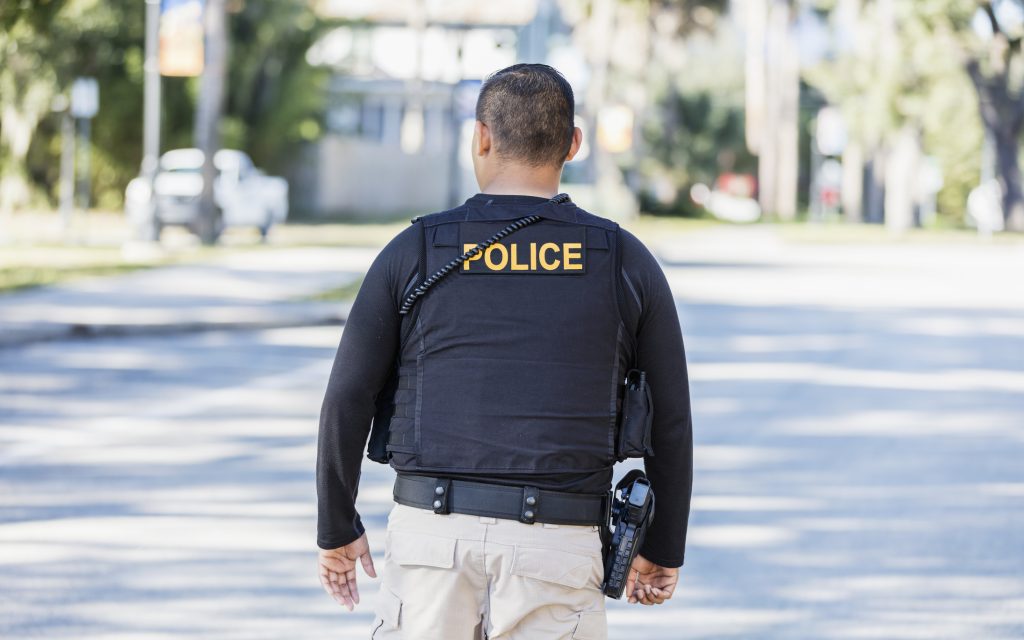
Mental health issues for law enforcement is real
Approximately 4,500 people die by suicide each year in Canada, with men being three times more likely than women to die by suicide. Among law enforcement personnel—who face significant mental health challenges due to the nature of their work—suicide risk is higher than among the general population. Comprehensive mental health support is critical to address the very stressful and unpredictable nature of police work to mitigate this risk amongst those working in policing and law enforcement more generally.
A recent report by the National Police Federation (NPF) based on a study by a team of researchers at the University of Regina found that 15.9 per cent of RCMP officers have had plans for suicide throughout their lifetime, and 4.6 per cent planned to do it last year. In another study around 44 per cent of Canadian public safety personnel (PSP) including police officers screened positive for one or more mental health disorders, and substantial proportions of officers reported past-year and lifetime suicidal ideation, planning and attempts.
Police officers, paramedics, and even firefighters respond to calls where people have taken their lives. This repeated exposure to death normalizes the concept of suicide, often desensitizing officers over time. Sometimes, they resort to dark humour to cope with the stress they are exposed to. They may consider the methods they see others use to take their lives, and it becomes normalized. More maladaptive coping strategies are also possible, with some being more obviously problematic (e.g., increased substance use) and others being more subtle (e.g., sleep problems, working excessively, avoiding social interaction).
Shifting world views affect mental health
The normalization of death and suicide in police culture may change the way law enforcement officers view the world over time. To a person who does not work in the police world, for example, a waterpark represents a fun outing with family, but to a law enforcement officer, it might conjure up images of accidents, injuries, or even sexual predators. When they respond to incidents and accidents daily, their perception of the world begins to change.
Over time, officers might not fully appreciate how their own views have shifted. But desensitization, cynicism and distrust can creep in, affecting their mental health. This can manifest in many ways, including irritability, decreased care or concern for others, withdrawal from social interactions or becoming overly involved in work to avoid processing emotions.
Prevention strategies
The factors contributing to this are multifaceted. High-stress environments, exposure to traumatic events and the stigma surrounding mental health in law enforcement play crucial roles. Law enforcement officers often feel they are supposed to be tougher and stronger than the average person because they are the ones people call when they need help. It becomes part of police culture. And it can make people reluctant to admit when they are struggling, even to themselves.
Effective prevention strategies require a multi-pronged approach. First, creating a supportive environment where officers feel safe discussing their mental health is vital. This should include regular mental health check-ins and groups following traumatic incidents. Normalizing these conversations can reduce the stigma and encourage officers to seek help. Talking to someone they trust is important—whether that be a loved one, a colleague or a professional.
It’s critical to recognize the signs early. Withdrawal from social life or over-engagement in activities can both be warning flags, as can mood swings, irritability, impatience and many other reactions. It’s essential to take time to look inward and listen to what’s going on internally. If you consider how we foster our physical well-being—through regular exercise, nutrition and self-care—it’s surprising that we don’t pay more attention to our mental health.
Having immediate strategies for coping with stress and traumatic incidents is important and sometimes overlooked. For example, acknowledging that you’ve had a rough day and need to recharge your batteries, which could be as simple as five minutes of listening to a couple of songs, lighting a candle and sitting in silence, making a quick call to a friend, or sitting on the porch and watching a rainstorm.
Fostering resilience
It’s also ok to be ok. Lots of people don’t know how resilient they are. Sometimes people don’t realize that the hobbies or habits they already have are strategies that help them cope with stress. For many people, exercise, socialization and spending time in nature are regular habits that are already contributing to their resilience.
For many, the path to law enforcement included some sort of assessment of psychological traits required to face the demands of the job. At Calian, we do suitability assessments for law enforcement, so we are already helping select people who are capable of withstanding the stress associated with police work. We use psychological test results and clinical interviews with psychologists to assess for traits such as stress tolerance, emotion regulation and strong interpersonal skills.
But even the most resilient people can sometimes be affected by the traumatic incidents that law enforcement officers are exposed to daily. Acknowledging this, and addressing and caring for our mental health proactively can save lives and improve the overall well-being of those who protect and serve our communities.
If you or someone you know is struggling with suicidal thoughts, please seek help immediately. Resources are available 24/7 for suicide prevention and mental health support, including the Suicide Crisis Helpline at 988 (call or text) and Talk Suicide Canada at 1-833-456-4566 or text 45645.
About the author: Dr. Nina Fusco is chief psychologist at Calian. She works closely with law enforcement clients providing psychological services to address their unique needs, from suitability assessments and candidate selection to resilience training and mental wellness. Click here to learn more about Calian Psychological Services.